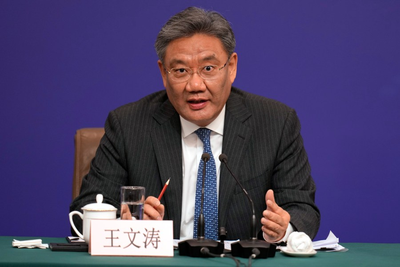
The Escalating Trade Dispute Between the US and China
The United States and China are locked in a high-stakes trade dispute over access to critical minerals, fueling worries about global supply chains. The Biden administration has tightened export controls on advanced semiconductor technology, aiming to prevent Chinese companies from leveraging US technology to produce their own chips.
Critical Minerals: A Vital Component for Advanced Technology
Access to critical minerals is crucial for US producers of advanced technology and components. Gallium, germanium, and antimony are among 50 "critical minerals" designated by the United States Geological Survey (USGS) as essential to US economic or national security. Disruptions to supplies could have significant costs, with a recent USGS study estimating potential losses exceeding $3 billion.
Alternatives and Countermeasures
The US has been working to diversify its supply chains, including tapping into alternative sources of rare earths and other critical materials within the country. President Joe Biden's visit to Africa this week highlighted efforts to secure minerals from African countries as part of a broader "Minerals Security Partnership" with the EU and 15 other nations.
China's Response: A Ban on Critical Mineral Exports
China has responded to US trade limits on advanced technology by banning exports of gallium, germanium, and antimony to the US. These metals are essential components in advanced semiconductors, used in a range of applications including artificial intelligence, defense systems, and consumer electronics.
The Backstory: A Pattern of Escalating Tensions
The trade dispute is part of a broader pattern of escalating tensions between the US and China over trade policies and technology transfer. Since 2018, the two nations have exchanged tariffs and imposed export restrictions on each other's companies.
Key Points to Consider
- The US has tightened export controls on advanced semiconductor technology to prevent Chinese companies from leveraging US tech.
- China has responded by banning exports of gallium, germanium, and antimony to the US.
- These metals are essential components in advanced semiconductors, used in AI, defense systems, and consumer electronics.
- The US is working to diversify its supply chains, including tapping into alternative sources of rare earths and other critical materials within the country.
- China's dominance as a supplier gives it an overwhelming cost advantage, but US companies face strong pressures over potential environmental impact.
The Situation Remains Uncertain
Much depends on future developments in overall relations between the two powers. In recent statements, Chinese industry associations have denounced Washington's moves to curb access to strategically sensitive technologies, describing US computer chips as unreliable. Beijing has also announced its ban on exporting critical minerals to all countries, entities, and individuals, vowing to hold violators accountable under law.
Next Steps
The situation remains uncertain, with China adopting a more cautious approach in response to US trade limits on advanced technology. The next steps will depend on future developments in overall relations between the two powers.